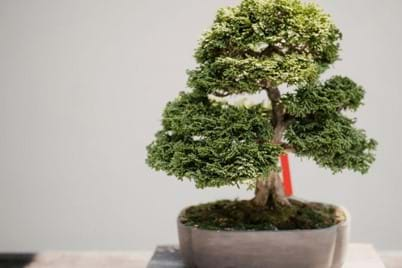In the early nineteenth century the poet John Keats immortalised autumn as the 'Season of mists!'. With this seasonal abundance of atmospheric moisture it's easy to see why this is the time of year for fungal diseases.

Fungi spread by means of tiny dust-like particles called spores. Spores fly through the air and, if the right type of spore lands on an appropriate plant, the spore may start to germinate and develop a fungus – but only if there's moisture around. Hence, autumn mists, dew and showers play an important role in helping the spread of fungal diseases.
Here are some of the most common fungal diseases that are found in the garden:
Powdery mildew
Named after the powdery coating that spoils new shoots and leaves, powdery mildew affects plants like roses, cucurbits (pumpkin relatives), hydrangeas, azaleas and apples.
Yates Lime Sulfur provides effective control of powdery mildew and is suitable to be applied to vegetables including tomatoes. For non-edible plants such as begonias (which are very prone to mildew), Yates Rose Gun & Black Spot Insect Killer is a good choice for treating powdery mildew on roses and other ornamentals.
Leaf spot
The most notorious leaf-spotting disease is black spot, the scourge of rose plants. The spores of this disease need to sit on a moist surface for about seven hours before they can germinate, so one of the best ways to prevent its development is to keep the leaves dry. Always water roses in the morning and allow the leaves to dry out through the day. Yates Rose Gun & Black Spot Insect Killer or Yates Rose Shield Insect & Disease Spray do a good job of controlling this pernicious disease.
For the control of leaf spot disases on Carnations, hollyhocks, pelargonium, snapdragons, gladioli only, try Yates Mancozeb Plus Garden Fungicide & Miticide.
For the control of fungal leaf spots on ornamental plants, try Yates Leaf Curl Copper Fungicide Spray.
For the control of bacterial leaf spots on ornamental plants, try Yates Liquid Copper Fungicide.
Often caused by a disease suffering under the unpronounceable name of phytophthora, this problem moves up from the roots to cause dieback in leaves and stems. It affects plants such as eucalypts, grevilleas, daphne and many others. Poor drainage can exacerbate the problem, so try to avoid growing susceptible plants in heavy or clay soils. Yates Anti Rot is a gentle systemic fungicide that helps treat root rot and build up the plant's resistance to its attack. Root rot
Rust
Rust gets its name from the yellow/orange pustules that appear on the foliage. There are hundreds of different rust diseases and they affect a wide range of plants. Use Yates Rose Shield Insect & Disease Spray to treat Rust.







